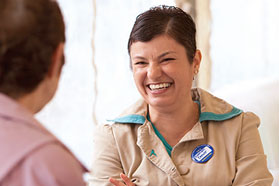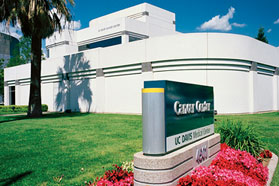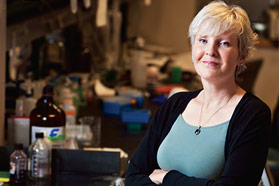Features

Younger cancer patients face higher hurdles for healing
Adolescent and young adult (AYA) cancer patients – those between ages 15 and 39 – have shown little or no improvement in cancer survival rates for several decades, even while other age groups have shown marked improvement. WeCARE! Peer Navigator Program helps address disparities.

National research team tries new approach to speed treatments
Greater than the sum of its parts, about a dozen university cancer centers search for better cancer treatments.

Cancer Center researchers develop new surgical decision-making tool for late-stage patients
A new decision-making tool developed by a team led by UC Davis Cancer Center surgical oncologist Robert Canter allows physicians to calculate patient-specific risk of dying due to complications from the surgery, based on variables associated with their disease.

Research aims to improve outcomes for HER2 breast cancer patients
Whether stress contributes to the onset or progression of cancer is a question many eminent cancer researchers have dismissed, pointing to a body of epidemiological studies as proof of its invalidity.

Creative hi-tech tools draw in teens and young adults with cancer
When Marlene von Friederichs-Fitzwater was diagnosed with cervical cancer as a young adult, she felt afraid about how the illness might affect her life. But there was more.






